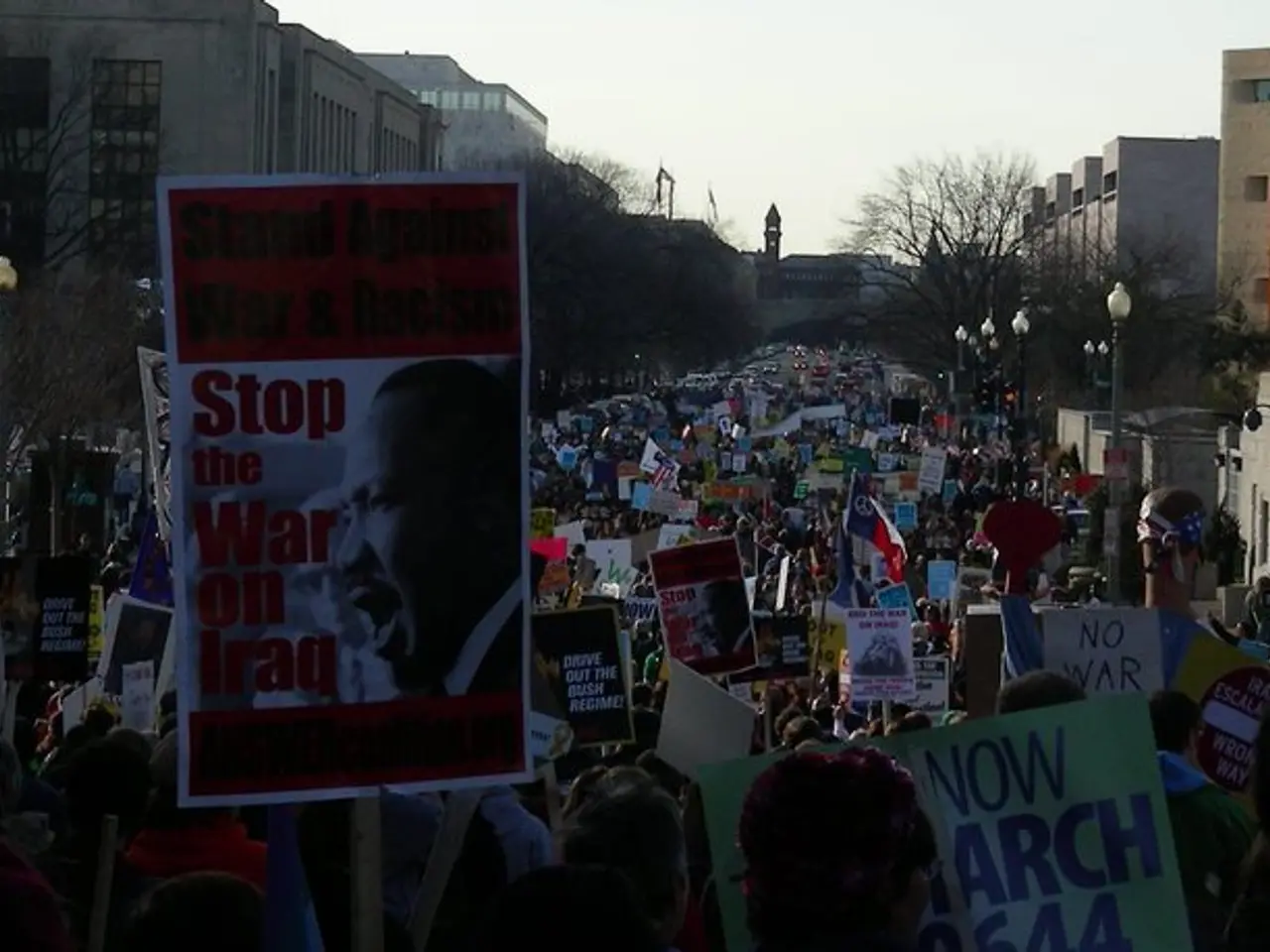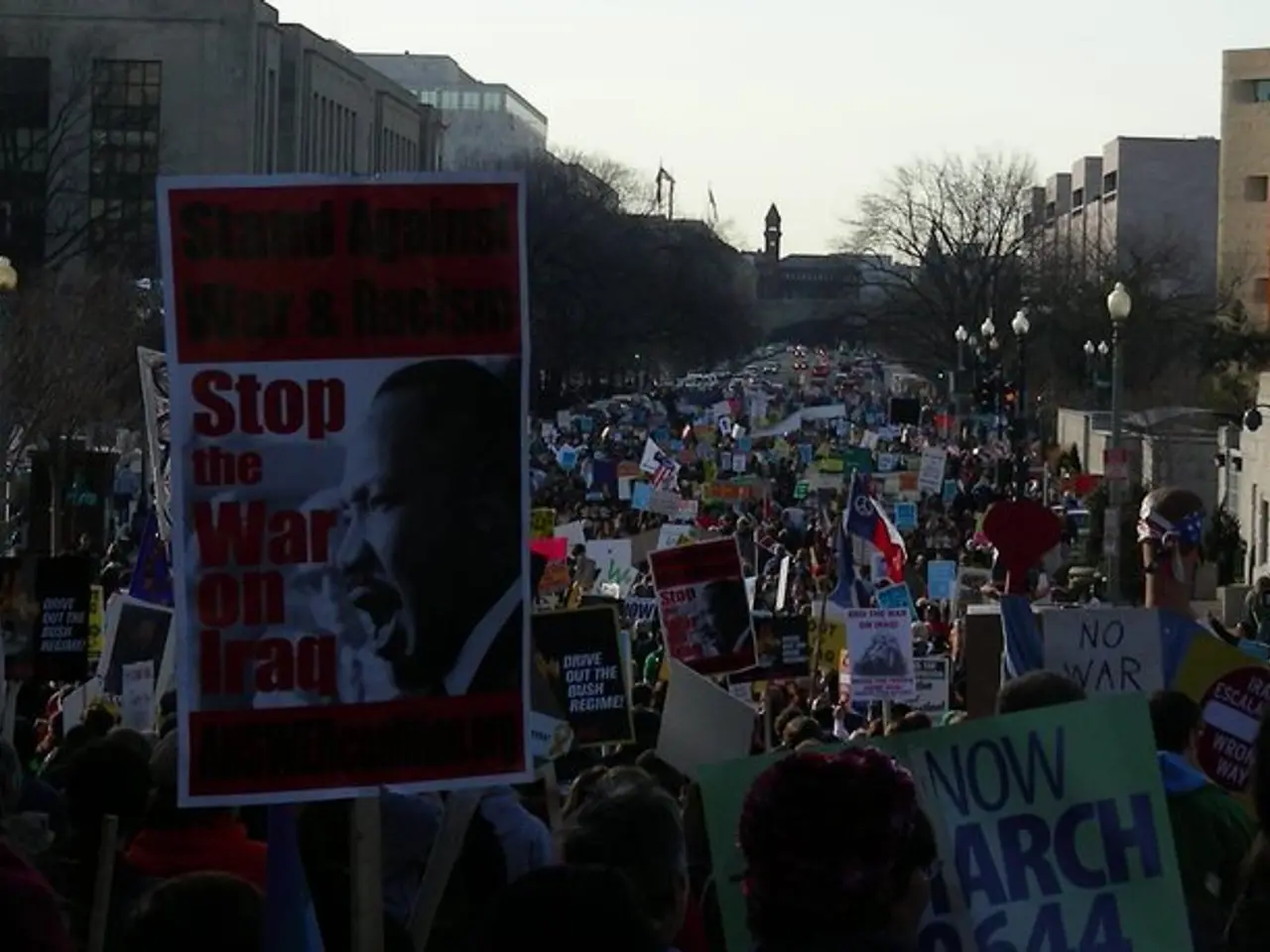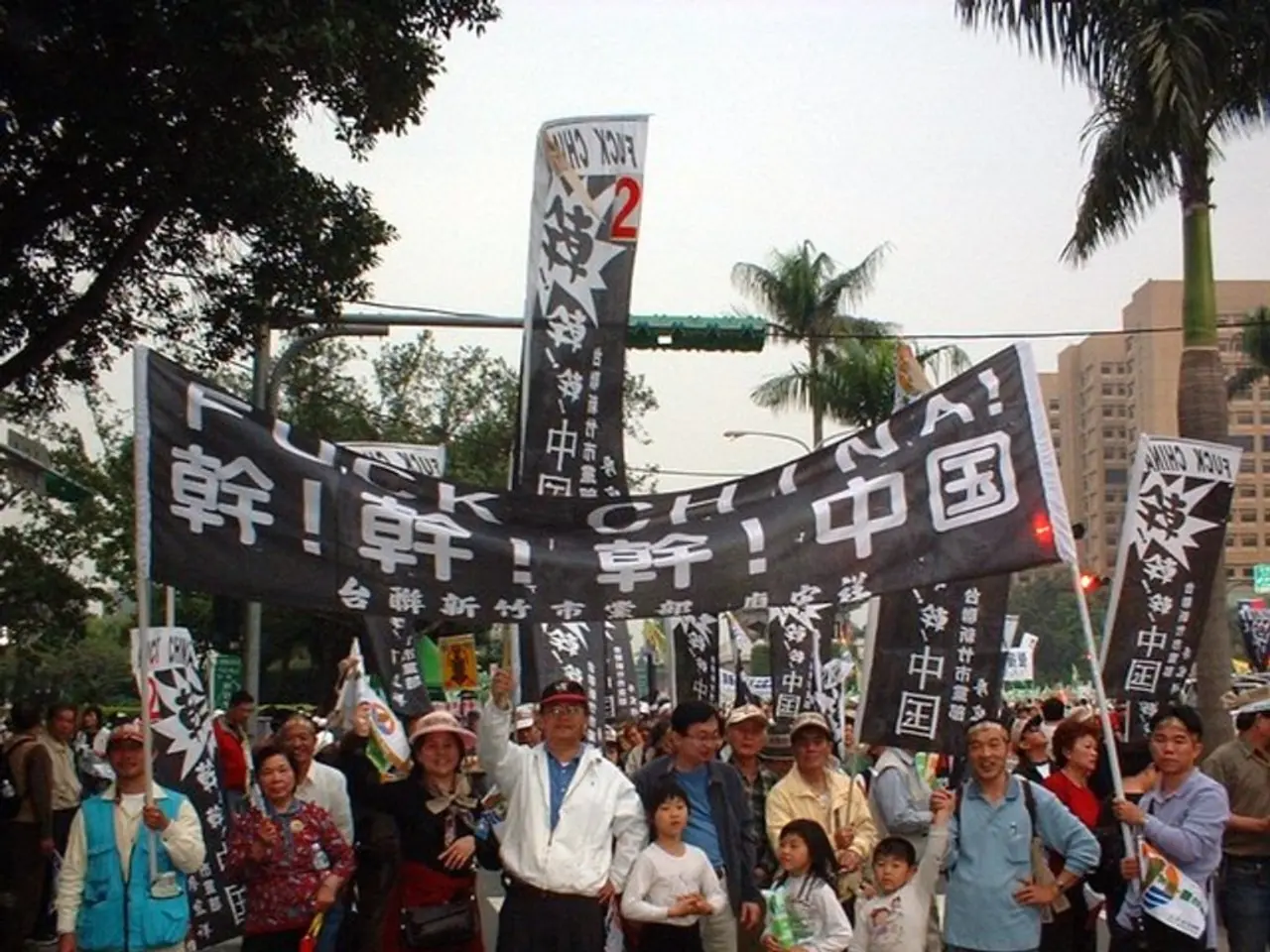Urge for Tranquility in Wake of Controversial Judges' Election Vote - Council urged to assert position on issue
In the heart of Berlin, political leaders are locked in discussions to resolve a contentious issue surrounding a failed judicial appointment to the Federal Constitutional Court. The crisis, which has been unfolding within the black-red coalition, has raised questions about the coalition's ability to navigate potential challenges and maintain unity.
The black-red coalition, a partnership between the Christian Democratic Union (CDU) and Christian Social Union (CSU) and the Social Democratic Party (SPD), was formed following the February 2025 federal election, a necessary move after the collapse of the previous traffic light coalition. However, the coalition has faced numerous challenges and controversies.
One such challenge is the CDU's stance against cooperating with the Alternative for Germany (AfD), which has been classified as a right-wing extremist endeavor by the Federal Office for the Protection of the Constitution. The government has also been criticized for lacking a clear political direction and systematically outsourcing responsibility, with the opposition, led by Bündnis 90/Die Grünen, leading the charge.
The government has also faced significant fiscal challenges, necessitating substantial borrowing to fund defense and infrastructure projects while cutting development aid. These fiscal woes could potentially impact the coalition's ability to reach a consensus on judicial appointments.
The failed judicial appointment in question involves the SPD's candidate, Frauke Brosius-Gersdorf, who has faced resistance from the Union due to her stance on abortions. Despite the failed election, the SPD intends to stick with its two candidates for the Federal Constitutional Court.
The ongoing crisis has strained relations between the CDU/CSU and SPD, with both parties engaging in internal discussions to identify common ground and potential candidates who could satisfy both parties' requirements. However, the CSU is also part of the ongoing crisis, adding another layer of complexity to the negotiations.
In an effort to find a solution, the parties involved are urging for calm and peaceful discussions, emphasizing respect for the Federal Constitutional Court, candidates, and the MPs who will make the election decision. While the CDU's leader, Friedrich Merz, and the faction leader, Jens Spahn, have yet to comment on the failed judicial appointment, CDU parliamentary business manager Steffen Bilger has urged for a measured approach and called for calm discussions with the SPD.
As the talks continue, the German Press Agency reports on the ongoing crisis, with Merz set to speak about the failed judicial appointment at the latest on Sunday in the ARD summer interview. Without specific details on the failed appointment, these steps represent general strategies for addressing political impasses in coalition governments.
As the situation unfolds, it remains to be seen how the black-red coalition will navigate this crisis and whether they can find a solution that satisfies all parties involved. The outcome of these negotiations could have significant implications for the future of the coalition and the political landscape in Germany.
The black-red coalition, amidst a contentious issue about a failed judicial appointment, is seeking to rally around policy-and-legislation matters that can foster unity, such as aid for the production of electricity and energy saving. These topics, being neutral grounds, might facilitate productive discussions and help divert attention from the current political crisis.
As the negotiations continue, the coalition members are emphasizing the importance of adhering to the principles of politics and general news, which focus on collaboration, compromise, and respect for all parties involved, to ensure a peaceful resolution for the failed judicial appointment.







